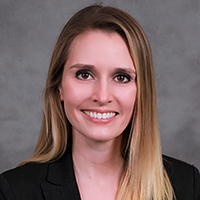Faculty worry about growing influence of social media platforms in daily life
Social media consumption has been on the rise since the start of COVID-19 and some PNW faculty are worried that may not be a good thing.
“There are two sides of critics,” said Rhon Teruelle, who teaches Mass Communication and Social Media. “There are techno-pessimists and techno-optimists of social media.
“Optimists appreciate how social media gives people a platform and a voice to express themselves,” he said “Pessimists say that social media is desensitizing us and that we can no longer talk to one another. I think that both sides have validity.”
Studies show that social media consumption has increased with the pandemic. Datareportal, which annually reports on social media use, found that the number of Americans active on social media rose by 12.5% last year and represent nearly 81% of the U.S. population. The study also found Americans are spending more time using social media consumption, up to two hours and 14 minutes each day.
“I would say my screen time has significantly increased since the start of the pandemic,” said Charles Dacanay, a junior Computer Science major. “With quarantine periods and school being forced to move online, there has been a definite increase in my screen time.
“Social media is a good way of bridging the gap of communication,” he said. “Now, people from all around the world can view photos, videos, and other material together.”
But David Pick, chair of the Department of Psychology, worries that social media users can get overwhelmed with information – and can fail to decipher facts from fiction.
“It is not good,” said Pick. “I am not particularly optimistic. The university looks to train students of being critical of information. However, I do not see a lot of critical evaluation on fact versus fiction.”
Business Marketing major Kyle Codozor has experienced it.
“My consumption probably has gone up,” said Codozor, a senior. “Being confined to my own space a lot of the time drew me to media.
“One negative effect is the oversaturation of media,” he said. “I would say that I have become numb to a lot of things in the media. You see so much negativity, almost to the point where you would just ignore it.”
Still, Codozor understands the allure of social media.
“You see a lot of … companies using all of these different platforms to sell products,” he said. “It is an effective way to conduct business.”
For one professor, it’s a convenient way to keep in touch with friends and family.
“For sure,” said Erin Okamoto-Protsman, a Communication and Creative Arts professor. “My family has been very diligent of the CDC protocols, so we have been staying inside.
“My daughter is a COVID nurse,” she said. “She was stuck in a hotel for 60 days. If we did not have ways to get in contact with her, it would have been way more stressful than it already was.”
But Okamoto-Protsman is concerned that Americans may be relying too heavily on social media.
“I do not like when one tries to consume too much media at once,” she said. “When you try to text or check your phone during a movie, you are not able to focus on anything.”
Okamoto-Protsman said students in her COM 250 class are typically surprised by how much time they spend with media when they are forced to keep a 24-hour media log.
“Social media has been a blessing to staying connected with others,” she said. “However, a lot of screentime translates to a lot of stress for students.
“I don’t think we know its greatest potential yet,” said Okamoto-Protsman. “That said, we have so much choice. We are all doing our own thing and watching our own little niche. One of the main functions of mass media is to bring us together, but with so much choice, I think there is a potential to keep pulling us apart, which I would not like to see.”
Teruelle also questions the potential of the internet.
“Everything is slowly going towards social media,” said Teruelle. “As a scholar of social media, I think that media is more and more becoming an extension of our everyday life. It is coming to a point where anything we can think of can be done on social media. It is hard for me to think of any limitations where if we do it in real life, we can’t do it on media.”



